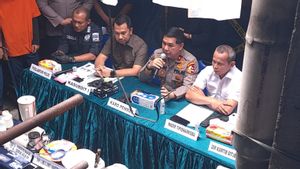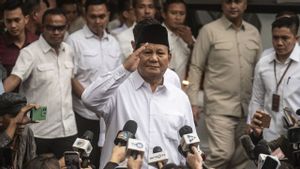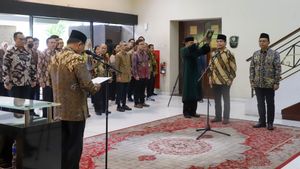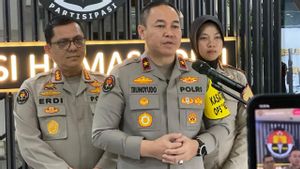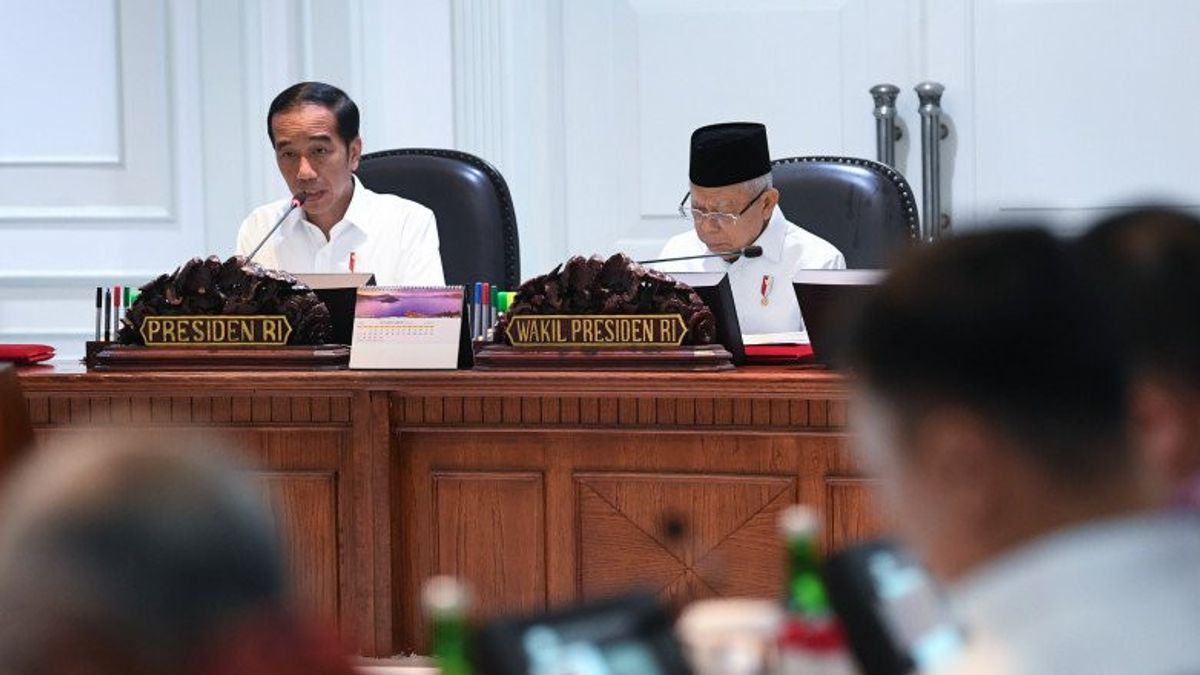
JAKARTA - President Joko Widodo (Jokowi) is pushing for the ratification of the Asset Confiscation Bill (RUU) to eradicate corruption.
"I urge that the Criminal Act of Asset Confiscation Bill be promulgated immediately and the discussion on the Bill on Restrictions on Currency Transactions begin," President Jokowi said at the Jakarta Presidential Palace, reported by ANTARA, Tuesday, February 7.
President Jokowi conveyed this in a press conference to respond to the reduction in Indonesia's 2022 Corruption Perception Index (IPK) together with Attorney General ST Burhanuddin, Coordinating Minister for Political, Legal and Security Affairs Mahfud MD, KPK Chair Firli Bahuri, and National Police Chief Gen. Pol Listyo Sigit Prabowo.
In the context of relations between countries, said Jokowi, Indonesia's Chair in the G20 has agreed that the priority agenda in eradicating corruption will continue to be carried out and as Chair of ASEAN, Indonesia will strengthen its commitment to eradicating corruption and upholding the law in the region.
"I reiterate that I will not give the slightest tolerance to the perpetrators of corruption," said the President.
The DPR and the government have agreed to include the Bill on Asset Confiscation Proceeds of Crime in the 2023 National Legislation Program (Prolegnas) list. It has been 10 years since the DPR has discussed it since it was proposed in 2012.
The Asset Confiscation Bill is important considering that Indonesia submitted instruments of ratification of the "United Nation Convention Against Corruption" (UNCAC) and "United Nations Convention Against Transnational Organized Crimes" (UNCTOC) several years ago as a reference for the formation of the Asset Confiscation Bill.
However, member of Commission III of the DPR, Arsul Sani has warned that the formation of the Asset Confiscation Bill should not create new legal problems and be ineffective.
As for the Bill on Restrictions on Currency Transactions, academic papers have been around since 2017 but have never been discussed even though they have been included in the five-year Prolegnas list.
SEE ALSO:
In a Hearing Meeting (RDP) with PPATK, the Chairman of Commission III of the DPR, Bambang Wuryanto, conveyed the DPR's reluctance to support the discussion and ratification of the Bill on Restrictions on Currency Transactions because, without cash, politics cannot work.
Bambang said that when you come to the people for a campaign or to visit anywhere you have to bring an envelope so that the Bill on the Limitation of Currency Transactions is absolutely rejected.
In the Bill on Limiting Currency, there is actually a stipulation that spending over Rp. 100 million must go through a bank, so that every large transaction from a public official can be recorded by the bank.
Even though a number of countries with relatively similar geopolitical conditions to Indonesia have implemented restrictions on cash transactions. Malaysia, for example, limits cash transactions with a maximum limit of 50,000 Malaysian ringgit, the Philippines applies a cash transaction limit with a maximum value of Php4,000,000, while India applies a limit of 200,000 Indian Rupees for cash transactions.
It is considered that the Bill on the Limitation of Cash Transactions can strengthen existing regulations by limiting currency transactions in its entirety so that the mode of financial crime which is generally carried out with cash transactions to obscure and eliminate traces can be minimized.
The English, Chinese, Japanese, Arabic, and French versions are automatically generated by the AI. So there may still be inaccuracies in translating, please always see Indonesian as our main language. (system supported by DigitalSiber.id)



